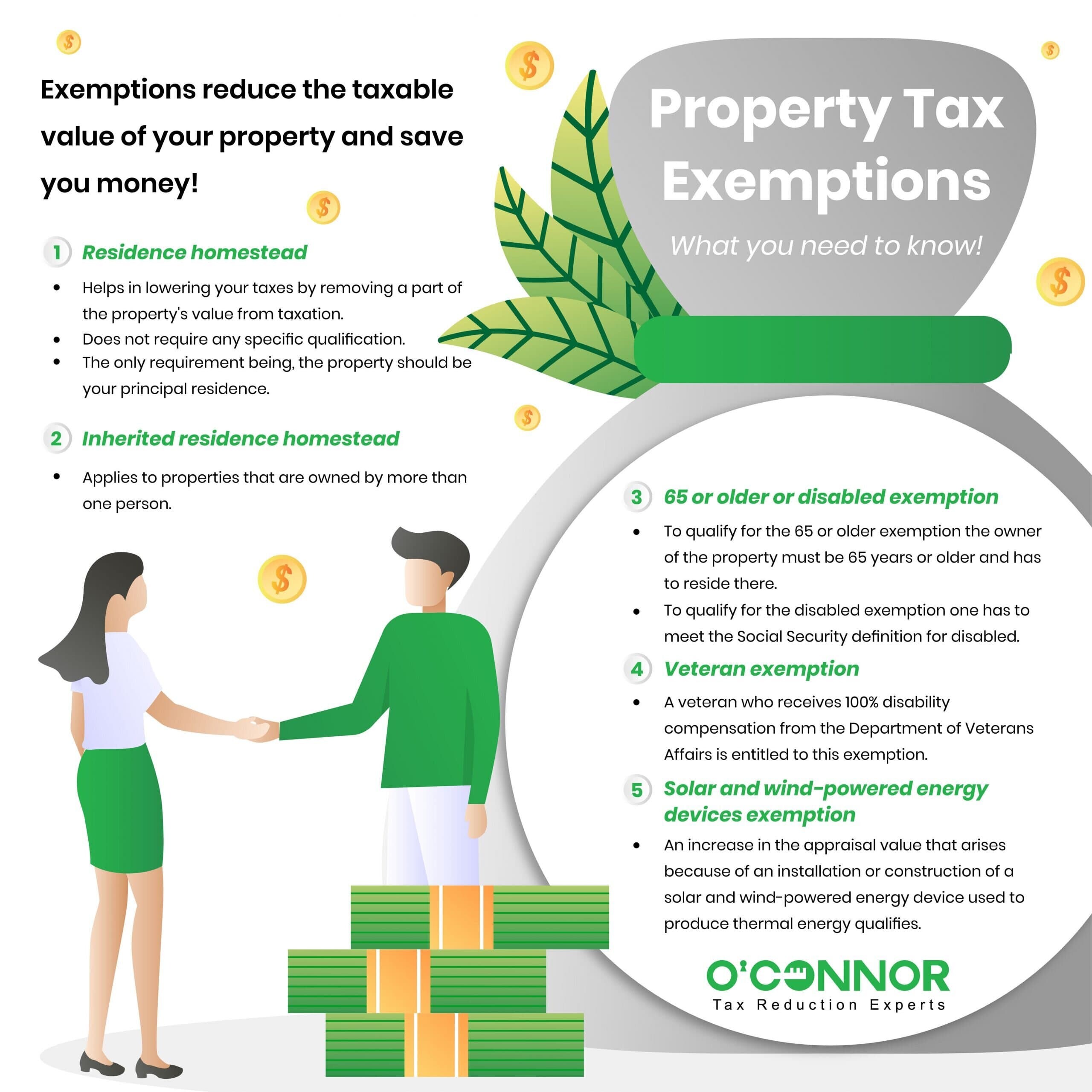Texas does not have any state property tax as such but does have taxes that are all locally assessed. Property taxes are the major source of revenue that pays for the services the local government offers. Property taxes are determined based on the appraised property values and sometimes the values might seem high and that is where exemptions come into play. Exemptions can help you lower your tax burden. Texas offers exemptions both partial and total exemptions. The entire property gets excluded from taxes in case of a total exemption whereas a partial exemption excludes only a certain percentage from taxation.
Applying for a property tax exemption
In many cases, property tax exemptions require an application, and these applications are submitted to the appraisal districts on or before May 1st. The chief appraiser then analyses if the property qualifies for the exemption or not
Types of exemptions

-
Residence homestead
A residence exemption helps in lowering your taxes by removing a part of the property’s value from taxation. Let’s understand it better with an example. Say you qualify for a residence homestead exemption that is around $30,000 and the appraised value of your house is $150,000. You would only be paying taxes for as much as $120,000 as if your house was worth only so much.
There are only two things that you need to qualify for a residence homestead exemption. The house must be owned by you and should be your principal residence. You are also required to mention that you do not claim an exemption on any other residence in Texas or outside the state.
-
Inherited residence homestead
This applies to properties that are owned by more than one person. In this case, an individual claims the residence as a residence homestead, and the property was acquired by will, intestacy, or transfer on a death deed. In cases where a property owner is not identified as the owner of any of the above-mentioned recorded instruments in the place where the property is located, they must provide the following documents to the county appraisal district.
- an affidavit that establishes the ownership of interest
- the previous owners, copy of death certificate
- a recent utility bill
- reference of any court recording that relates to the applicant’s ownership of the property.
-
65 or older or disabled exemption
As per the tax code, “the state of Texas” can offer an extra of $10,000 as a residence homestead exemption for those who are 65 or older or disabled. The taxing unit also has the option to decide to offer a separate residence homestead exemption which cannot be less than $3,000. To qualify for the exemption the owner of the property must be 65 years or older and has to reside there. If in case the homeowner dies after the age of 65, the spouse can continue receiving it but has to be 55 years or older and must own the house and live in it.
To qualify for a disabled exemption one has to meet the Social Security definition for disabled. A person who is disabled and is 65 years or older can receive both the exemptions in a particular year but the same taxing unit does not provide both.
-
Veteran exemption
A veteran who receives 100% disability compensation from the Department of Veterans Affairs is entitled to this exemption. At the time when the veteran died, if the home was the residence of the surviving spouse, the spouse becomes eligible for the exemption. Only if the spouse has not remarried since the death of the veteran.
-
Solar and wind-powered energy devices exemption
An increase in the appraisal value that arises because of an installation or construction of a solar and wind-powered energy device, that is mainly used for producing and distributing thermal or electrical energy, is 100% exempted as per the Texas property tax code. Here is the application for this exemption.
Get answers to all your questions related to property tax exemptions. Here is a document prepared by the Texas Comptroller for your convenience.
